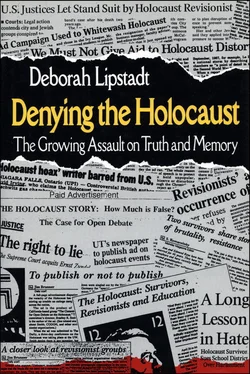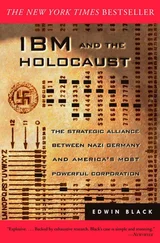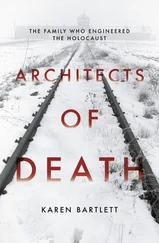I have also delved into this distasteful topic because of my conviction that only when society—particularly that portion of society committed to intellectual inquiry—comprehends the full import of this group’s intentions will there be any hope that history will not be reshaped to fit a variety of pernicious motives. Time need not be wasted in answering each and every one of the deniers’ contentions. It would be a never-ending effort to respond to arguments posed by those who falsify findings, quote out of context, and dismiss reams of testimony because it counters their arguments. It is the speciousness of their arguments, not the arguments themselves, that demands a response. The way they confuse and distort is what I wish to demonstrate; above all, it is essential to expose the illusion of reasoned inquiry that conceals their extremist views.
It is also crucial to understand that this is not an arcane controversy. The past and, more important, our perception of it have a powerful impact on the way we respond to contemporary problems. Deniers are well aware of history’s significance. Not by chance did Harry Elmer Barnes believe that history could serve as a “means for a deliberate and conscious instrument of social transformation.” {89} History matters. Whether the focus be the Middle East, Vietnam, the Balkans, the Cold War, or slavery in this country, the public’s perception of past events and their meaning has a tremendous influence on how it views and responds to the present. Adolf Hitler’s rise to power was facilitated by the artful way in which he advanced views of recent German history that appealed to the masses. It did not matter if his was a distorted version—it appealed to the German people because it laid the blame for their current problems elsewhere. Although history will always be at a disadvantage when contending with the mythic power of irrational prejudices, it must contend nonetheless.
———
I was reminded of the potency of history when, on the eve of the Louisiana gubernatorial election in 1991, one of David Duke’s followers remarked in a television interview that there was all this talk about Duke’s past views on Jews and blacks and his Ku Klux Klan activities. That, the follower observed, was the past; what relevance he wondered, did it have for this election? The answer was obvious: His past had everything to do with his quest for election; it shaped who he was and who he remained. It has never been more clearly illustrated that history matters. (Neither was it pure happenstance that the late Paul de Man, one of the founders of deconstructionism, also falsified his past and reworked his personal history. {90} )
And if history matters, its practitioners matter even more. The historian’s role has been compared to that of the canary in the coal mine whose death warned the miners that dangerous fumes were in the air—“any poisonous nonsense and the canary expires.” {91} There is much poisonous nonsense in the atmosphere these days. The deniers hope to achieve their goals by winning recognition as a legitimate scholarly cadre and by planting seeds of doubt in the younger generation. Only by recognizing the threat denial poses to both the past and the future will we ultimately thwart their efforts.
CHAPTER TWO
The Antecedents
History, Conspiracy, and Fantasy
Modern Holocaust denial draws inspiration from a variety of sources. Among them are a legitimate historical tradition that was highly critical of government policies and believed that history was being used to justify those policies; an age-old nexus of conspiratorial scenarios that place a neat coherence on widely diverse developments; and hyperbolic critiques of government policies which, despite an initial connection to reality, became so extreme as to assume a quality of fantasy. The aforementioned historical tradition was taken over and co-opted by the Holocaust deniers. In the other two cases, denial was their logical successor.
The deniers consider themselves heirs of a group of influential American historians who were deeply disturbed by American involvement in World War I. These respected scholars, who called themselves revisionists, would have been appalled to learn of the purposes to which their arguments were put. In contrast to the Holocaust deniers, who make no distinction between fact and fiction, the World War I revisionists engaged in serious research and relied upon established canons of evidence. Despite these differences, deniers have tried to link the two traditions, arguing that each has sought to create an alternative history for major events of the twentieth century. However, one of these schools used traditional historiographic methodology to do so, whereas denial relies on pseudoscience.
The opening salvo in this fight was fired in 1920, when Sidney B. Fay, a professor at Smith College, published a series of articles in the American Historical Review on the origins of World War I. In these articles and in his subsequent book, Fay used archival material released after the war to argue that, contrary to prevailing American opinion, the Germans had not sought to go to war. Americans, Fay protested, had been fed a great deal of “silly propaganda” about who was really responsible for the war. {1} He insisted that Germany had neither plotted nor wanted a war and had made real efforts to avoid one. On the eve of World War I, according to Fay, German statesmen were the last leaders in Europe to abandon the quest for peace and mobilize their army, doing so only when all other options had been closed. {2}
Thus was born American World War I revisionism. One of Fay’s earliest associates in this effort was Harry Elmer Barnes, who in 1923 became his colleague at Smith College. Barnes, a prolific writer and a full professor by the age of thirty, quickly joined the battle. Soon he surpassed Fay and virtually every other revisionist in his vehement criticism of American foreign policy. His relentless attacks on the “orthodox” presentation of the war made him a hero in Germany. In American historical circles, he was infamous for his ad hominem assaults on those whom he believed advocated the traditional historiography of World War I. {3} While Barnes played a seminal role in the post-World War I revisionist debate, his importance for us is as the “father” of American Holocaust denial: He became one of Holocaust denial’s earliest proponents and wrote some of the first attacks on the history of the destruction of European Jewry. As we shall see in chapter 5, his method in both contexts was remarkably similar.
Prominent among the other academics who joined Fay and Barnes was Charles A. Beard. {4} Beard derisively dismissed the “Sunday-school theory” of the war: namely that Russia, France, and England, “three pure and innocent boys,” were assailed by two villains, Germany and Austria, who had been conspiring to commit “cruel deeds in the dark.” {5} Not only did they reject the idea of German responsibility, but they were distressed by the Versailles treaty’s use of the notion of war guilt in order to impose severely punitive conditions on Germany. The revisionists considered Article 231 of the treaty, which held German aggression responsible for imposing a war on the Allies, “historically incorrect and morally unjustifiable.” {6}
But these revisionists did not just exonerate Germany; they excoriated the Allies, accusing them of behaving duplicitously before and after the war. In their view, the British and French, anxious to lure the United States into the war, prevented it from learning about the very real German desire for peace and the “reasonable and statesmanlike” proposals offered by the Germans in order to avert war. {7} France’s aggressive and combative policy repeatedly closed off options for peace. Britain falsely accused Germany of committing horrible atrocities. According to the revisionists, even when World War I ended the Allies continued to behave in a deceptive fashion and refused to consider evidence that contradicted the notion of sole German war guilt. {8} The British, French, and American acts of postwar deception were particularly odious to the revisionists because as victors, the Allies knew that Germany was not really guilty. Using their power to keep the truth from emerging, the Allies engaged in a calculated refashioning of fact and forced the dregs of defeat down German throats even though the Germans did not deserve it.
Читать дальше












